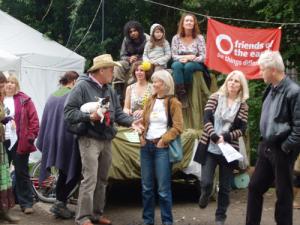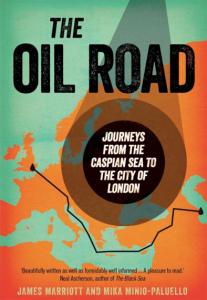Balcombe, 22 September. Photo: Gabrielle Lewry
On 16 September, a high court judge adjourned an application by the West Sussex county council to remove anti-fracking protesters from Balcombe after describing it as ‘flawed’.
Justice Beverly Lang said there was a need to consider the protesters’ right to peaceful assembly.
Demonstrators have been camped along London Road…



